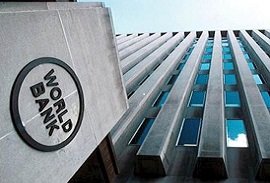MSMEs welcome jump in Ease of Doing Business rank but say ground level change still missing

Ease of Doing Busines for MSMEs: Amid India’s growth forecasts cut by different rating agencies including IMF, World Bank, Moody’s, S&P etc., a 14-rank jump in the World Bank’s annual Ease of Doing Business rankings this year to 63rd position up from 77th last year is likely to bring some cheer. For India’s micro, small and medium enterprises (MSME) which contributes 29 per cent to the GDP, 50 per cent of the country’s exports and has generated 11 crore jobs, as told by MSME Minister Nitin Gadkari at multiple public event, the key reforms captured by the World Bank in its study would certainly help small businesses yet there is a need for fundamental changes.
According to the World Bank among other improvements, obtaining permits to build a warehouse now costs 4 per cent of the warehouse value which is down from 5.7 per cent in the last year. Also, authorities enhanced building quality control in Delhi by strengthening professional certification requirements, the Bank said in a statement. It also noted ease in Importing and exporting for businesses with setting up of a single electronic platform for trade stakeholders, upgrades to port infrastructure and improvements to electronic submission of documents.
“Imports and exports are the lifelines for most MSMEs as for them Hence, setting up an online window has really helped them. However, with respect to building permissions, in most of the Tier-II and Tier-III cities, businesses have to run from pillar to post for getting clearances that impact their business. It takes 21 to 60 days to get the permit in small cities while in cities like Delhi it takes up to 21 days,” Manguirish Pai Raikar, Chairman – MSME, Assocham National Council told Financial Express Online.
While reducing the cost of permits to build a warehouse is a good move to highlight however it is more relevant for business in metros where “industries function within a limited area of operation and need spaces to store products whereas in small cities, businesses have sufficient spaces within their premises itself to store products,” added Raikar.
The country also saw a jump in resolving insolvency category from 108th last year to 52nd position. The Insolvency and Bankruptcy Code that came into force in 2016 was cited by the World Bank among the reforms that helped India improved its ranking in this category. “The new law introduced the option of reorganization (corporate resolution insolvency process) for commercial entities as an alternative to liquidation or other mechanisms of debt enforcement, reshaping the way insolvent firms could restore their financial well-being or close down,” the report said.
“Insolvency code has been very good for SMEs because earlier they had to wait for two years to prove that their balance sheets are going to be dead. Now I can cut short my losses otherwise banks interest rates etc., would have been multiplying,” said Raikar. ‘Trading across borders’ and ‘dealing with construction permits’ are the other categories where ranking improved from 80th to 68th and from 52nd to 27th respectively.
Nonetheless, experts maintain that what critical to help MSMEs transform their growth is the change at the ground level. “What is important is a level playing field at the ground level and mindset of government officials should be changed to handhold MSMEs sector. For instance, the government is not focusing on online systems. In Maharashtra, Gujarat, Karnataka, SMEs still have to knock doors of the government departments particularly for taking NOCs, electric connections, permissions for restaurants etc,”
Chandrakant Salunkhe, Founder and President, SME Chamber of India told Financial Express Online. The ranking in ‘getting electricity’ category dropped to 25th from 22nd. “The challenge in getting electricity connection has only improved from very difficult to difficult,” he added.
Recent Posts
- Conference on Empowering MSMEs: Opportunities, Challenges and Way Forward
- India-UK CETA: Charting a Progressive Partnership for Inclusive and Sustainable Growth
- Maharashtra Industry Dialogue 2025
- Maharashtra Industries & SME Summit Celebrates Sustainable Industrial Growth and Foundation Milestones
- India can become a global ‘power engine’ if youth skills are enhanced